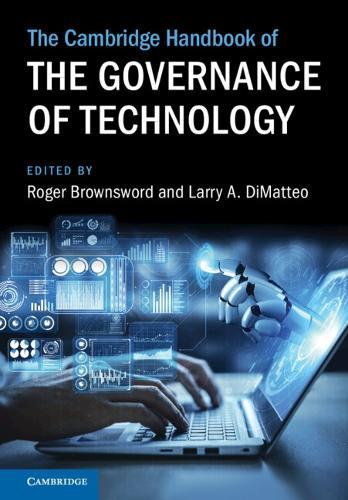Overview
In recent years, the use of AI has skyrocketed. The introduction of widely available generative AI, such as ChatGPT, has reinvigorated concerns for harm caused to users. Yet so far government bodies and scholarly literature have failed to determine a governance structure to minimize the risks associated with AI and big data. Despite the recent consensus among tech companies and governments that AI needs to be regulated, there has been no agreement regarding what a framework of functional AI governance should look like. This volume assesses the role of law in governing AI applications in society. While exploring the intersection of law and technology, it argues that getting the mix of AI governance structures correct-both inside and outside of the law-while balancing the importance of innovation with risks to human dignity and democratic values, is one of the most important legal-social determination of our times.
Full Product Details
Author: Roger Brownsword (King's College London) ,
Larry A. DiMatteo (University of Florida)
Publisher: Cambridge University Press
Imprint: Cambridge University Press
Weight: 0.829kg
ISBN: 9781009522533
ISBN 10: 1009522531
Pages: 328
Publication Date: 13 November 2025
Audience:
Professional and scholarly
,
Professional & Vocational
Format: Hardback
Publisher's Status: Active
Availability: Manufactured on demand

We will order this item for you from a manufactured on demand supplier.
Reviews
'Why do churches sometimes take great risks to defend liberal democracy? Religious institutions are often viewed as conservative actors, but Baldwin shows that this is not always true. Through a brilliant combination of cross-national and within-country evidence, Baldwin convincingly argues that churches with activities at risk of suppression and with independent sources of financing are more likely to resist autocrats. The book makes novel contributions to the study of democratic resilience, non-state provision, and religion in political life.' Melani Cammett, Clarence Dillon Professor of International Affairs, Harvard University 'Baldwin's fascinating book explores the dilemma of African churches that face risks of autocratic expropriation. Liberal democracy promises the conditions for survival, but there are risks and potential rewards for Church leaders to advocate democratic reforms, depending on whether they provide education and are free from state funding. Baldwin relies on newly compiled data, statistical tests, experiments, case studies, and compelling strategic analysis to identify the conditions for Church leader challenges to democratic decline.' David D. Laitin, James T. Watkins IV and Elise V. Watkins Professor of Political Science, Stanford University 'Why do some African Church leaders publicly oppose threats to liberal democratic institutions while others remain silent? Baldwin argues that it depends on whether such advocacy protects the Church's ability to achieve its ecclesiastical goal of spreading the gospel – especially through Church-run schools. This is a deeply researched and compelling book. It should be required reading for those interested in understanding the complex links between religion and democracy, in Africa and beyond.' Daniel N. Posner, James S. Coleman Professor of International Development, University of California, Los Angeles
Author Information
Roger Brownsword holds part-time professorial positions at King's College London and Bournemouth University. He has published many books and articles including, most recently, Technology, Humans, and Discontent with the Law: The Quest for Better Governance (Routledge, 2024), and The Future of Governance: A Radical Introduction to Law (Routledge, 2025). Larry A. DiMatteo is the Huber Hurst Professor of Contact Law, Warrington College of Business & Levin College of Law at the University of Florida. He is the author, or coauthor, and coeditor of more than 160 publications, including eighteen books. Some of his books are Principles of Contract Law and Theory (2024), The Cambridge Handbook of Artificial Intelligence (2022), Judicial Control over Arbitral Awards (2021), and The Cambridge Handbook of Smart Contracts, Blockchain Technology and Digital Platforms (2020).



